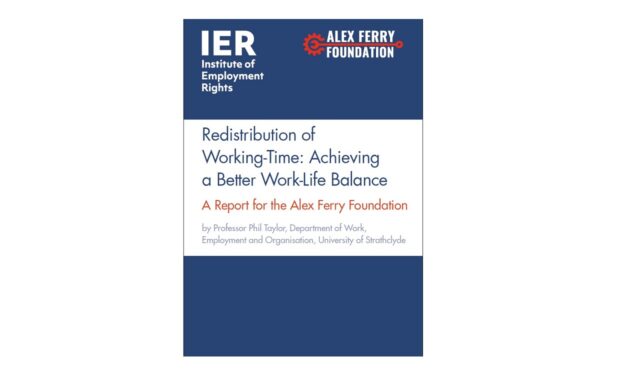Thousands of UK workers to take part in four-day week trial
"Sometimes it takes a big disruptor to dislodge deeply embedded societal and cultural norms."

More than 3,000 workers in 60 companies across the UK will test a four-day work week in what is thought to be the world’s largest pilot scheme.
The research comes after the Covid pandemic led many people and companies to re-examine their working patterns, with a marked rise in hybrid and flexible practices that eschew the traditional nine-to-five, five-day work week.
The Covid pandemic has changed the world of work for many in the UK, with hybrid and remote working offered amongst businesses that are re-examining their working patterns. Now the UK is set to be home to the biggest trial of a four-day work week.
This pilot is a coordinated, 6-month trial in the UK of a four-day working week, with no loss in pay for employees. The trial will start in June and end in December.
4 Day Week Global is coordinating the pilot in partnership with the think tank Autonomy, the 4 Day Week UK Campaign and researchers at Cambridge University, Boston College and Oxford University.
Trials of a four-day week have taken place across the world. Reykjavík City Council and Iceland’s national government trialled the four-day week with more than 2,500 workers between 2015 to 2019, which was described as an “overwhelming success”.
The trials led unions to renegotiate working patterns, and now 86% of Iceland’s workforce have either moved to shorter hours for the same pay or will gain the right to, the researchers said.
Joe O’Connor, the chief executive of 4 Day Week Global, said:
“The momentum behind the four-day week continues to build, and this is borne out by the incredible response we have received from UK employers to our pilot programme.
Increasingly, managers and executives are embracing a new model of work which focuses on quality of outputs, not quantity of hours. Workers have emerged from the pandemic with different expectations around what constitutes a healthy life-work balance.
Sometimes it takes a big disruptor to dislodge deeply embedded societal and cultural norms. That’s what we are seeing with the traditional five-day working week following the covid-induced flexible working revolution. Those who think we will turn the clock back to the way things were two years ago are engaged in ‘pie in the sky’ thinking – the four-day week is an idea whose time has come.”
In recent years, there has been a high profile debate around the four day week in political circles, across Europe and the world. Many trade unions will welcome this latest initiative, but others may be more cautious. There are certain UK sectors where a four-day working week is commonplace, having already been negotiated – and there are clear concerns that a reduction in pay may be ‘priced in’ too. It is certainly worth exploring the issues around compatibility – as any future change in the law could equate to robbing Peter to pay Paul.
Ben Sellers, Director of the Institute of Employment Rights (IER), said:
“There are a number of different approaches to shorter working hours and rethinking the working week. We are currently working with the Alex Ferry Foundation on a project looking at different approaches to a reduction in hours, which ensures that it is not used as an excuse for a pay cut. The 4 Day Week Global initiative is an important pilot, which illustrates the appetite that there is, in the wake of the pandemic, for a reassessing of the way we work. It’s a huge project and it’ll be fascinating to see the results.”





